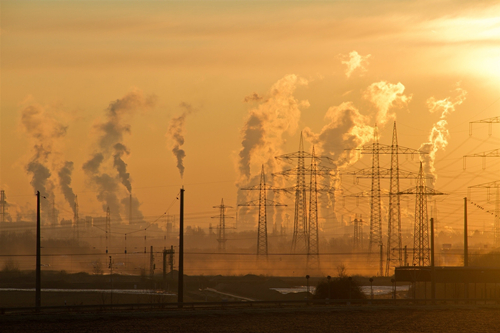
A Little Change for The Diapers, A Big Change for The World | Eco Boom Baby Bamboo Diapers and Wipes Manufacturer
A Little Change for The Diapers, A Big Change for The World | Eco Boom Baby Bamboo Diapers and Wipes Manufacturer

The COPs are the biggest and most important annual climate-related conferences on the planet.
This year’s UN Climate Conference took place in Sharm el-Sheikh, against a backdrop of extreme weather events worldwide, an energy crisis propelled by the war in Ukraine, and scientific data reiterating that the world is not doing enough to tackle carbon emissions and protect the future of our planet.



What’s the story with all these COPS?
The COPs are the biggest and most important annual climate-related conferences on the planet.
In 1992, the UN organised the Earth Summit in Rio de Janeiro, Brazil, in which the UN Framework Convention on Climate Change (UNFCCC) was adopted and its coordinating agency - what we know now as the UN Climate Change secretariat - was put into place.
In this treaty, nations agreed to “stabilize greenhouse gas concentrations in the atmosphere to prevent dangerous interference from human activity on the climate system”. So far, 197 different parties have signed it.
Since 1994, when the treaty entered into force, every year the UN has been bringing together almost every country on earth for global climate summits or “COPs” , which stands for ‘Conference of the Parties’ .
During these meetings, nations have negotiated various extensions of the original treaty to establish legally binding limits on emissions, for example, the Kyoto Protocol in 1997 and the Paris Agreement adopted in 2015, in which all countries of the world agreed to step up efforts to try and limit global warming to 1.5°C above pre-industrial temperatures, and boost climate action financing.
This year marks the 27th annual summit, or COP27.
So, what are the big objectives this time?



Mitigation: how are countries reducing their emissions?
Climate Change Mitigation refers to efforts to reduce or prevent the emission of greenhouse gases. Mitigation can mean using new technologies and renewable energy sources, making older equipment more energy efficient, or changing management practices or consumer behaviour.
Countries are expected to show how they are planning to implement the Glasgow pact call, to review their climate plans and create a work programme related to mitigation.
This means presenting more ambitious 2030 emissions targets, since UN Climate Change has said that current plans are still not enough to avoid catastrophic warming.
Adaptation: how are countries going to adapt and help others do the same?
Climate change is here. Beyond doing everything we can to cut emissions and slow the pace of global warming, countries must also adapt to climate consequences so that they can protect their citizens.
The fallout varies depending on location. It might mean the risk of more fires or floods, droughts, hotter or colder days or sea-level rise.
At COP26, delegates adopted a work programme on the global goal of adaptation established in the Paris Agreement.
The plan was put in place to equip communities and countries with the knowledge and tools to ensure that adaptation actions they take, are indeed moving the world towards a more climate-resilient future.
The COP27 Presidency expects nations to capture and assess their progress toward enhancing resilience and helping the most vulnerable communities. This means countries making more detailed and ambitious commitments in the adaptation components of their national climate plans.
Last year, developed countries agreed to at least double finance for adaptation, and many stakeholders are calling for even greater levels of adaptation funding to match the amounts that are now being spent on mitigation, as established in the Paris Agreement. This will definitely be a big conversation topic at Sharm el-Sheikh.
UNFCCC is clear that to respond to the present and future climate risks it is necessary to significantly increase the scale of adaptation finance, from all sources – public and private sources. All players must come on board – governments, financial institutions, and the private sector.
Climate Finance: the elephant that never leaves the negotiation room
Climate finance is a top theme once again at COP27, many finance-related discussions are already on the agenda, with developing countries making a loud call for developed countries to reassure sufficient and adequate financial support, particularly to the most vulnerable.
Copyright © 2019 XIAMEN MK HEALTH CARE PRODUCT CO., LTD . | All Rights Reserved
We are here to help you! If you close the chatbox, you will automatically receive a response from us via email. Please be sure to leave your contact details so that we can better assist